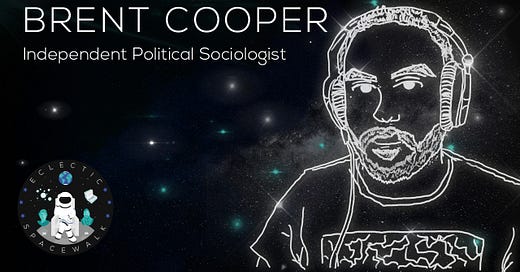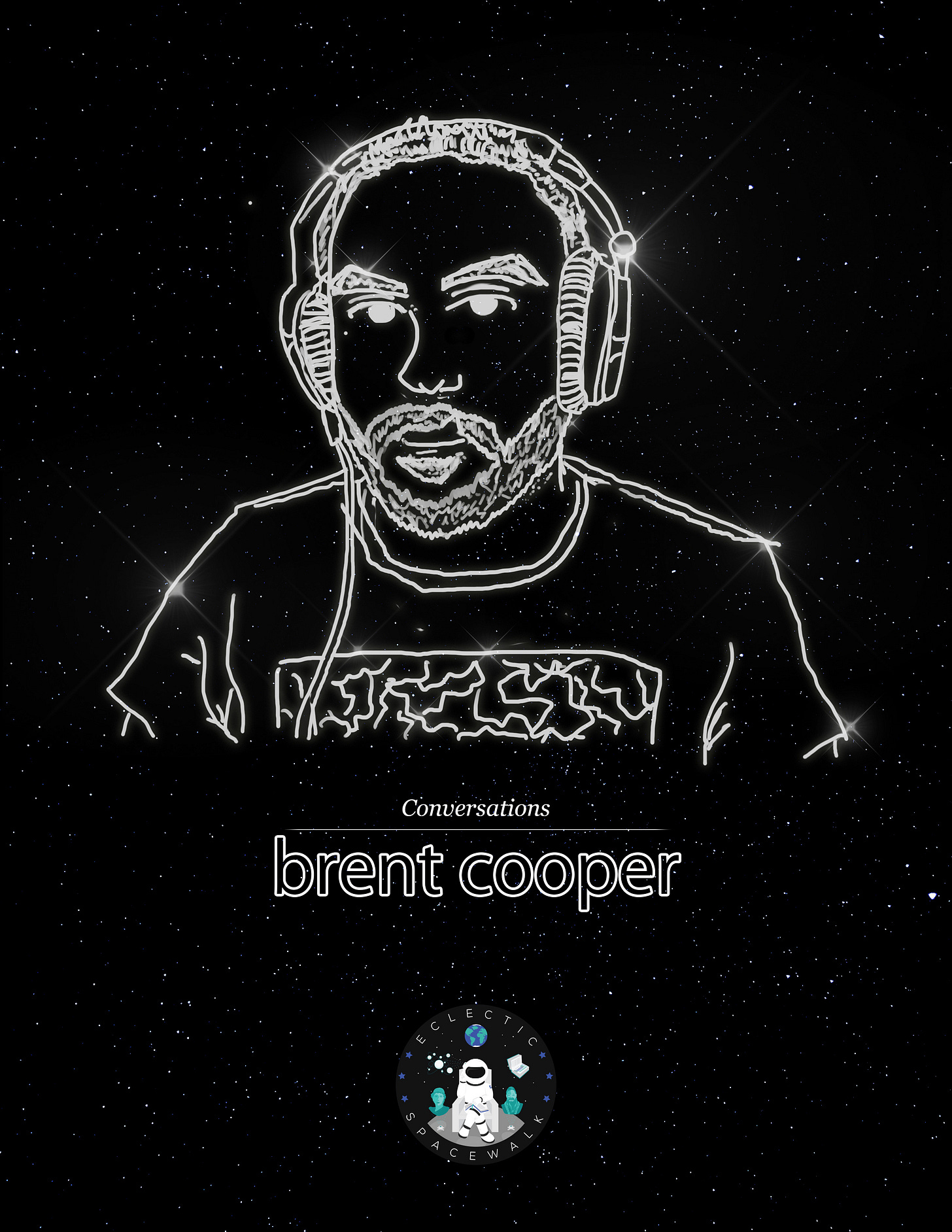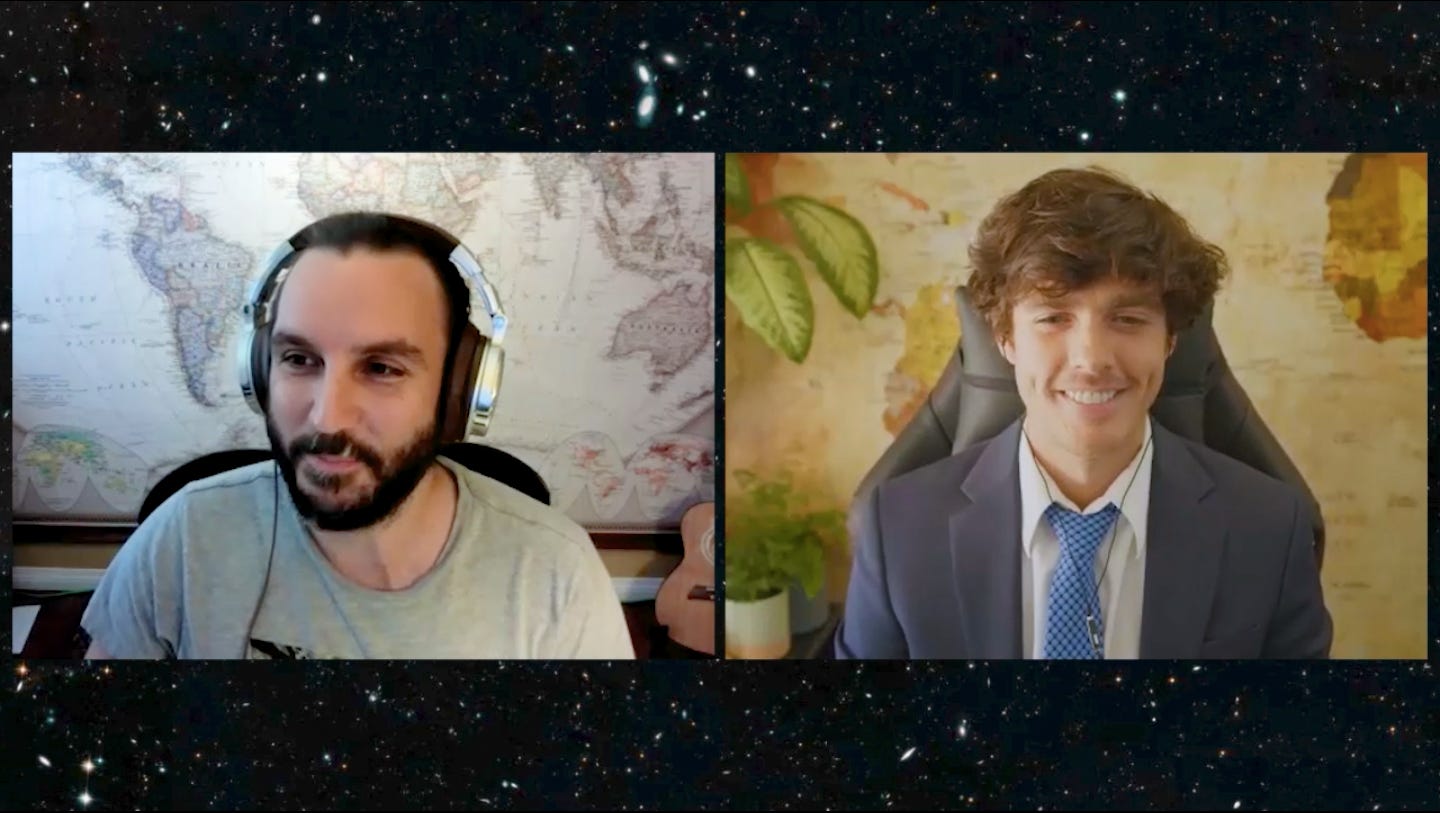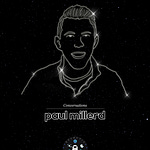A conversation with Independent Political Sociologist & Filmmaker, Brent Cooper—
Hey Eclectic Spacewalkers!
Last week we had the pleasure of sitting down with Brent Cooper. Brent is an independent political sociologist, filmmaker, and the Founder and Executive Director of The Abs-Tract Organization.
We came across Brent like most of the people that have come on ‘Conversations’ - through Twitter. Brent’s writing was our first introduction to him, as he lucidly and ruthlessly critiqued the Intellectual Dark Web, Game B, the meta/hyper modernism movements, and a lot of what was and is happening in our current political discourse.
Brent's background includes growing up in Vancouver, a unique journey to and from academia and back again, starting the Abs-Tract Organization, as well as making a film of a - shall we say - “satirical” nature (check it out below).
The Abs-Tract Organization ("TATO") is a meta-think tank formed to provide global solutions to systemic problems, specializing in "abstraction", an advanced thinking process and social critique with wide ranging applications.
Our conversation was far-reaching, thought-provoking, and interesting to say the least. We have included some of Brent’s best writing below, along with timestamps from our discussion. We thank Brent for his time, research, and eclectic mind.
We hope you enjoy the conversation!
Timestamps:
Working in blue-collar jobs for 5 yrs between college and graduate school (07:00)
Living in the Anthropocene epoch and the difference between Meta-modernism & Hyper-modernism (11:45)
Timothy Morton’s Hyperobjects, Object-Oriented Ontology, and Modern Monetary Theory (16:55)
“Key Logs”, keystone, technopoly, and other heuristics (24:45)
Five favorite logical fallacies featured on Brent’s The Stoa lecture (33:05)
Anti-Intellectualism, THAT Jordan Peterson vs. Slavoj Zizek, the IDW, Game B, & Anti-Debates (42:40)
Our recent episode with Claire Webb, the Drake Equation, the Fermi Paradox, and the importance of collective action (58:40)
the idea of “Systemic Conspiracy” (01:01:40)
A critique on IRL and reductionist modalities (01:18:40)
The Abs-Tract Organization (01:22:30)
Brent’s message for his “Overview Effect” question (01:33:04)
Brent was recently published in Dispatches from a Time Between Worlds: Crisis and emergence in metamodernity: Manifesting Mass Metanoia: Doing Change in Trying Times
“Political Sociologist and Metamodern Activist, Brent Cooper, writes about ‘mass metanoia – a social transformation, paradigm shift, systems change, etc.’ which is described as ‘a necessary possibility’. While some limit metamodernism to a broadly descriptive endeavor, Cooper makes an impassioned case for why metamodernism can and should be politically normative.
He describes seven major interrelated ‘turns’ of metanoia for the metamodern spirit: to know the history of metanoia, to see the cognitive roots of metanoia and its social implications, to use metanoia as leverage to intervene and overturn capitalism’s pathologies, an explicit metamodern turn in sociology and society, the role of religion in the post-secular age, feminist praxis, and finally, the fundamental choice between metanoia over paranoia in the context of our historic bifurcation in which postmodernism morphs into metamodern or hypermodern trends.”
—
Other recent examples of Brent’s writing and research:
The Rise of the ‘Emergentsia': Meaning Making in a Time Between Worlds.
“Many people are asking ‘what’s next?’ - even the Emergentsia are - but in the meantime they are holding the space for people to discover their relationship to the meta-crisis, and to generate the personal sovereignty to rise to the challenge. As de facto educators, they help to communicate nature’s brittle complexity, our species’ self-terminating consumptive sprawl and conflictual politics, juxtaposed with our own god-like powers of abstraction and volition to change it and avoid extinction.”
—
Mapping Metamodernism for Collective Intelligence
“Now, a third incarnation of metamodernism, disaggregated and re-constituted, is possible; one that gives a multi-perspectival and historicist overview of itself, a side view that fosters a more synchronized and collectively energized metamodern turn. The three approaches outlined here inform each other and can be seen as successive waves of a zeitgeist, yet ever-present. Ideally, metamodernism will become a vital philosophy and a way of life, in Hadot’s sense, but I fear we’re falling short of this future attractor, while the world is demanding a response now.
Despite their many successes, if we’re honest, all senses of the term appear to fail when tested against the collapsing state of the world. A politics of terminal capitalism appears to be winning, a state in which really nobody wins, while pandemics and greater climactic threats loom large. This begins yet another introduction and invitation for metamodernism, a prelude to a deeper metanoia, to a conversion state in service of resolving the meta-crisis that can in turn achieve systems transition over the coming days, weeks, years, decades, and beyond.”
—
The Hypermodern Highway to Hell
“The hypermodern highway to hell is the road that ends with a brick wall (or a cliff) while we argue over where to sit in our accelerating car — gas, electric, or otherwise. It is techno-capitalist dystopia, to which almost all of us are “committed” (in both the devoted and psychiatric senses), even on our best days. On the other hand, the metamodern meandering path is seeking a return to a home we are still building, a humble homeostatic homestead and a relative utopia for all. The hypermodern impulse holds us hostage; by jobs, by debt, by white-collar criminals and kleptocrats, and it's going to take a whole lot more sociological shadow work and political mobilization to defeat.
I’ve touched on over a dozen authors contributions to a hypermodern theory and discourse. They share many common themes such as time, historicity, technology, speed, excess, individualism, and very late/militarized capitalism. The bifurcation of postmodernism into of hypermodernism and metamodernism provides a more elegent frame for understanding the global transformation and political schisms. There is still hope through the horror. A revision and synthesis in the respective literatures is at least possible if not more fruitful in juxtaposition, in order to determine what each is and is not, and what should be in our imminent (and immanent) unfolding future.”
—
Convergence for Consensus Building
“Change is inevitable but hard nonetheless. There are growing pains and transitional traumas, whether the process is intentional or not. But it doesn’t have to be so difficult; we have maps and mediators to guide us. Many have prepared for this sort of challenge, but we still have to choose it. Against my idealism, I often hear the phrase “you’ll never get everyone to agree”, to which I respond; “have you tried?” It is a constant effort to change ourselves and each other, but I think we’ve been doing it mostly wrong.
Convergent understanding requires resources, structure, and most importantly, will. What we see instead is a long drawn-out contest of ideas, most of which are bad. The research on consensus-building suggests that it works given the right conditions, which I believe we can create. The process pictured above illustrates a group activity that integrates divergence, emergence, and convergence into a practice to steward and sense-make a transformation for concrete positive outcomes and solidarity.”
—
ABSTRACTION: WHITEPAPER| Draft V1.02.1
Conclusion: “In conclusion, "abstraction" writ large is proposed as a knowledge representation framework, with novel expression under metamodernism- an emergent paradigm suggestive universal social philosophy. Abstraction also a multivariate thought process, social process, and critique of society and its conceptual objects. "Vicious"(false) abstraction is the errant translation of knowledge, leading to unjust or 'vicious' outcomes, the system at ic habits which are correlated with anti-intellectualism and endarkenment.
Global capitalism is an 'abstract empire that the 'open society seeks to remedy, but falls short due to fallibility and compromising trade-offs. Global civil society and alter-globalization are emergent movements to establish social and political equilibrium, which The Abs-Tract Organization seeks to anchor in an abstract or "pure sociology" as a critical pedagogy and public policy platform, communicated through a public sociology that bridges critical theory with common sense to foster a 'critical mass society. 'The concept of abstraction is a meme tracked through various discourses to highlight its versatility as a semantics signifier and unifier.
The quantum turn in social science promises that a complete metaphysics of society is within reach, though it may exceed our grasp. As per the tradition of ending research papers, more research and knowledge production abstraction is needed, and thus TATO is worth supporting. Statement of potential conflicts of interest or corruption by funding sources: absolutely none.”
Watch on YouTube:
—
Clip #1: Meta-modernism & Hyper-modernism, Hyper Objects, and Technopoly
—
Clip #2: Logical Fallacies, Anti-Intellectualism, the IDW, and Game B
—
Clip #3: Systemic Conspiracy and the Abs-Tract Organization
More on Brent Cooper:
The Abs•Tract: Core Philosophy
More on Eclectic Spacewalk:
Subscribe to Substack Newsletter
Listen to all podcasts on Anchor
Follow Eclectic Spacewalk on Twitter















Share this post